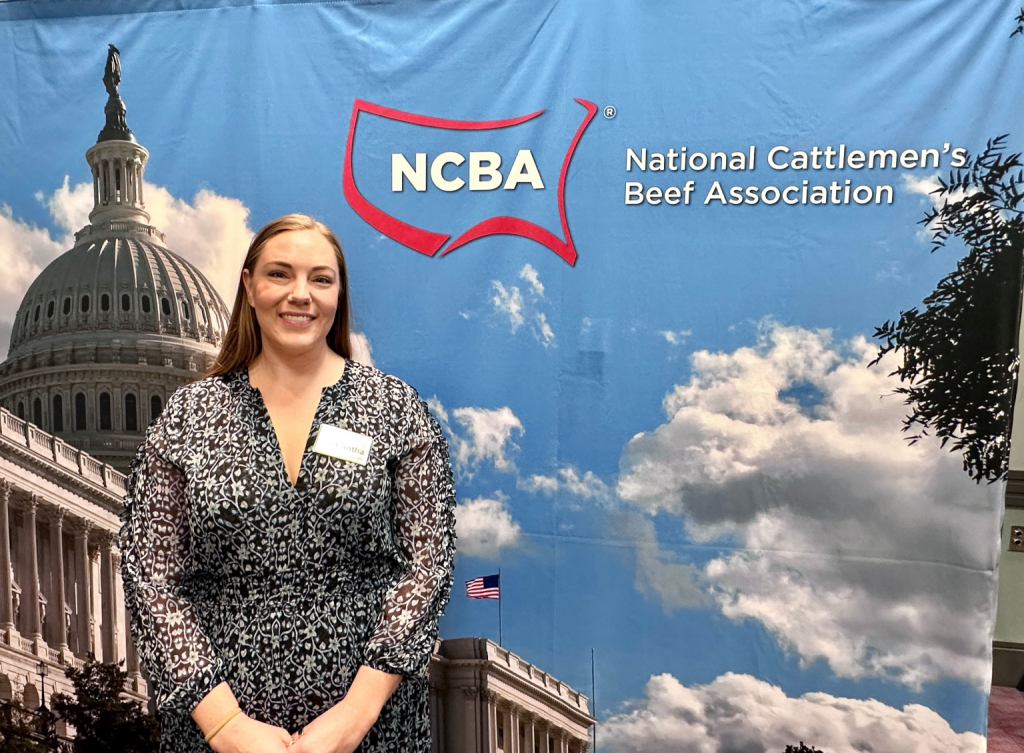
In this special “Best Of” edition of Beef Buzz, Senior Farm and Ranch Broadcaster Ron Hays is featuring his conversation from back in March with the Director of Sustainability at the National Cattlemen’s Beef Association, Samantha Werth, talking about sustainability in the beef industry.
NCBA launched sustainability goals in November of 2021, Werth said, and since that time, one focus of NCBA has been defining what sustainability means for the cattle industry.
“For us, that comes down to the animals, the people, and the planet,” Werth said. “We are really focused on what we can do as a cattle ranching and producing community to advance sustainability initiatives, continuously improve as we have been for decades, and be able to leverage that work we are doing to share across the broader industry.”
When it comes to talking to producers about sustainability efforts, Werth said profitability is a big concern.
“If we are talking about a new grazing management strategy that is going to help with enhancing biodiversity on the land, are there ways we can enhance biodiversity for producers to help get them paid, essentially, for that work they are doing to enhance biodiversity,” Werth said. “In anything we are doing, we are looking at what are the opportunities to get support and what are the ways we are going to improve profitability for a producer if we are implementing sustainability practices.”
By keeping conversations centered around what is viable for producers, Werth said NCBA works to help producers implement ways to be sustainable while still being plenty profitable. As for the cattle industry’s goal to be carbon neutral by 2040, Werth said things are on track.
One of the key conversational elements for the cattle industry when it comes to climate change and the carbon footprint is methane. Werth said the cattle industry has a great story to tell when it comes to methane.
“There is a lot we can be doing on both the cow-calf side and the feedyard side to really help in that conversation, and it really does support that goal towards climate neutrality,” Werth said.
Werth said NCBA has been creating resources around grazing management planning because it is an easy option for producers to assess the state of their land, livestock, and operation goals. With the help of a grazing management plan, Werth said producers can achieve many goals, including being more sustainable.
“There are a lot of great USDA-funded programs that are out there,” Werth said. “We work with an entity called Trust in Beef, and they are doing a lot right now in that space of connecting producers to climate-smart commodity projects that will help producers get paid if they implement new practices.”
Werth said the biggest component of reaching these sustainability goals is raising awareness and providing opportunities for producers to keep doing what they do best. When it comes to being regenerative, Werth said she likes to think of regenerative agriculture as a piece of sustainability.
Regarding those who are against animal agriculture, Werth said it is important to remember that beef production has a great story to tell regarding land use.
“We use land that cannot be used for any other purpose other than grazing livestock,” Werth said. “In doing that, we support the ecosystems, we support biodiversity on those lands, and help enhance the quality of those lands.”
The Beef Buzz is a regular feature heard on radio stations around the region on the Radio Oklahoma Ag Network and is a regular audio feature found on this website as well. Click on the LISTEN BAR at the top of the story for today’s show and check out our archives for older Beef Buzz shows covering the gamut of the beef cattle industry today.


















